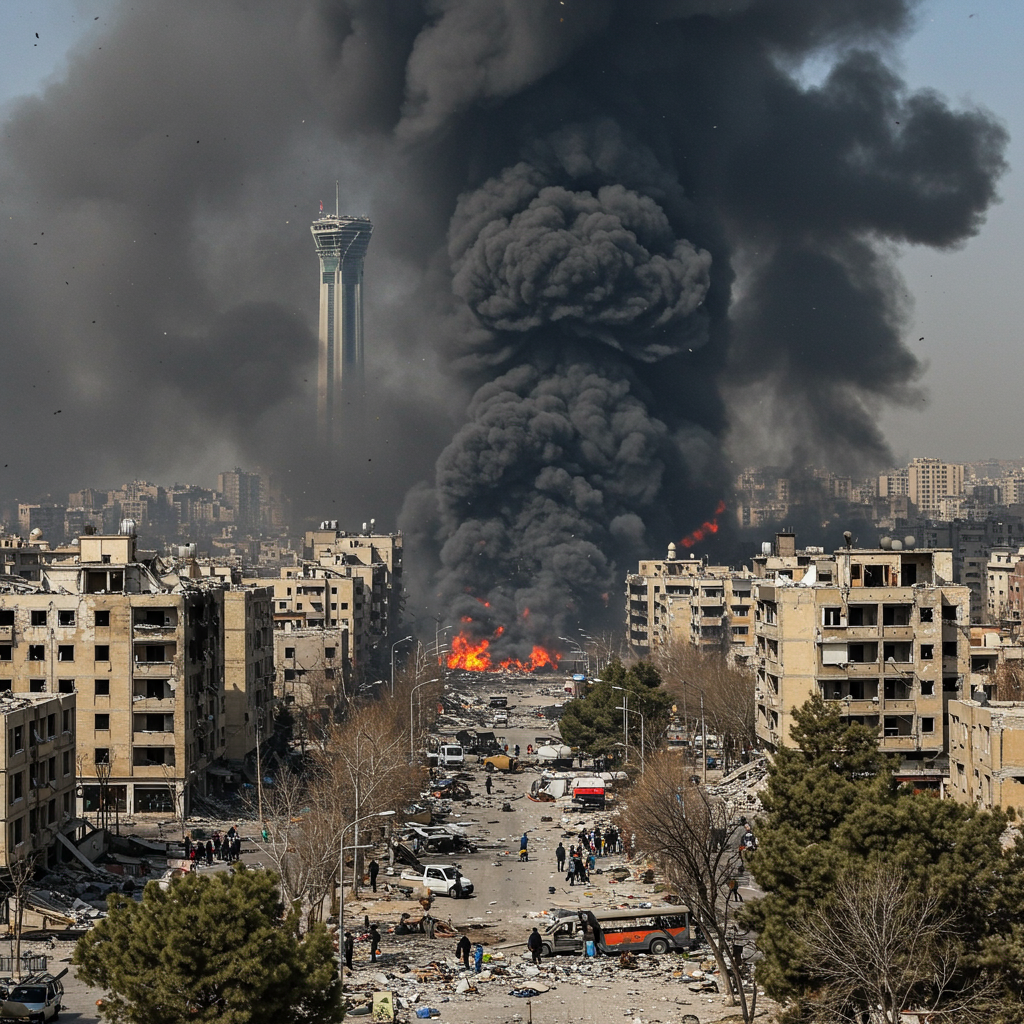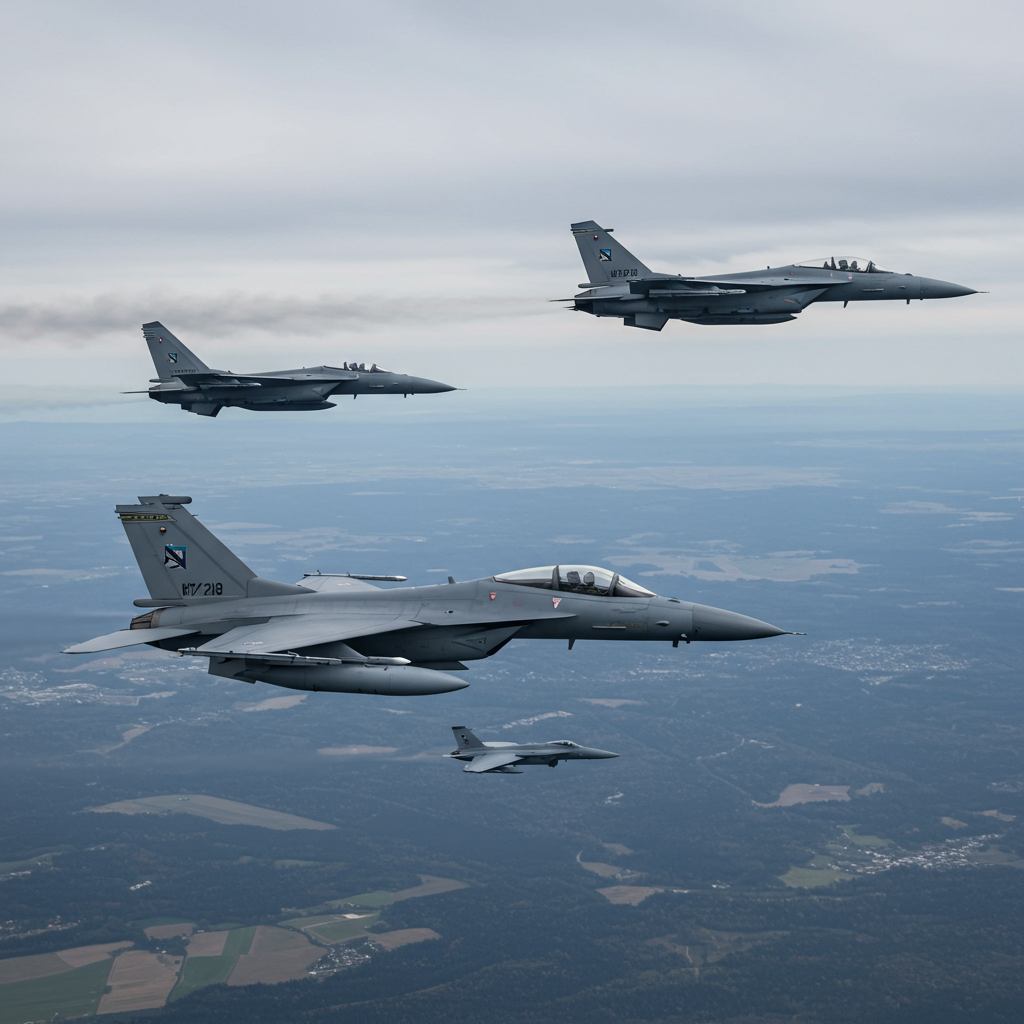Israel Unleashes Intense Strikes on Tehran as Conflict Escalates
Intense Israeli airstrikes pounded Iran’s capital, Tehran, in the early hours of Wednesday, June 18, 2025, marking a significant escalation in the weeklong conflict between the regional adversaries. The bombardment, described as some of the most direct and intense yet, followed a stark warning for Tehran residents to evacuate from the Israeli military and a demand for Iran’s “unconditional surrender” from U.S. President Donald Trump.
Predawn blasts rattled the city, with a particularly deafening explosion reported around 5 a.m. local time. The strikes are part of Israel’s extensive air campaign targeting Iran’s military and nuclear infrastructure, which Israel asserts is crucial to prevent Iran from acquiring nuclear weapons.
The Escalating Conflict: Casualties and Retaliation
The fighting, now in its sixth day, has exacted a heavy toll on both sides. Israeli strikes have reportedly killed at least 224 people in Iran. Iran has retaliated by launching approximately 400 missiles and hundreds of drones towards Israel, resulting in 24 deaths there so far. While Israel’s Iron Dome air defense system has intercepted the majority of incoming projectiles, some have broken through, causing fatalities. This new front has erupted while Israel remains engaged in ongoing conflict in the Gaza Strip.
Iranian authorities have maintained a pattern of silence regarding the recent attacks on Tehran, a stance that has become increasingly common as the Israeli campaign intensified throughout the week.
Life Under Fire: Tehran Residents Flee
The intensity of the strikes has deeply impacted life in Tehran, a sprawling metropolis of roughly 10 million people. Following evacuation warnings echoed by President Trump on social media, a mass exodus began, leading to empty streets in downtown areas, the closure of the historic Grand Bazaar (which typically only shuts during major crises), bumper-to-bumper traffic on roads leading out of the city, and reports of long lines at gas stations. Many residents have been seeking shelter, with underground metro stations being utilized as precautions.
Targeting Key Infrastructure and Leadership
Israeli strikes targeted various locations within Tehran. One reported strike hit the Hakimiyeh neighborhood, home to a paramilitary Revolutionary Guard academy. The Israelis had also issued specific warnings about potential strikes south of Mehrabad International Airport, an area containing a mix of residential neighborhoods, military installations, pharmaceutical companies, and industrial firms, raising concerns about civilian casualties.
Israel also claimed to have killed General Ali Shadmani in Tehran, describing him as Iran’s most senior remaining military commander. Shadmani had only been appointed head of the Revolutionary Guard’s Khatam al-Anbiya Central Headquarters the previous week, following the death of his predecessor, Gen. Gholam Ali Rashid, in an earlier Israeli strike.
Focus on Iran’s Nuclear Program
A major objective of Israel’s campaign appears to be Iran’s nuclear program. The International Atomic Energy Agency (IAEA) confirmed a significant development: satellite imagery analysis indicated that recent Israeli attacks on the Natanz enrichment site caused direct impacts on the underground centrifuge halls. This is believed to be the first confirmed hit on the deeply buried facility, which experts assess contains 10,000 centrifuges capable of enriching uranium up to 60%.
While Iran maintains its nuclear program is peaceful and U.S. assessments suggest no organized effort to pursue a weapon since 2003, the IAEA has repeatedly warned that Iran possesses enough enriched uranium for several nuclear bombs if it decided to build them. Despite Israel’s claims of setting back Iran’s program significantly, the heavily fortified Fordo enrichment facility, built deep into a mountainside, remains untouched. Experts suggest hitting Fordo would likely require highly specialized U.S. capabilities, such as B-2 bombers dropping bunker-buster bombs.
Trump’s Stance and U.S. Involvement
U.S. President Donald Trump has taken a highly visible role in the escalating conflict. He abruptly left the Group of Seven (G7) summit in Canada a day early to focus on the crisis. In addition to demanding “UNCONDITIONAL SURRENDER” from Iran’s Supreme Leader Ayatollah Ali Khamenei, Trump claimed the U.S. knows Khamenei’s location but stated there were no plans to kill him “at least not for now.”
Trump signaled he wasn’t seeking a mere ceasefire, but a “real end” to the conflict that could involve Iran “giving up entirely,” adding he was “not too much in the mood to negotiate.” However, he left the door open for diplomacy, mentioning the possibility of sending Vice President JD Vance and special envoy Steve Witkoff for talks.
The U.S. has been actively repositioning military aircraft and warships in the Middle East to protect Israel and respond to potential threats against U.S. installations. Satellite imagery reportedly showed U.S. Navy ships dispersed from their headquarters in Bahrain, a standard defensive tactic. Trump also reportedly discussed the evolving situation with Israeli Prime Minister Benjamin Netanyahu.
Iran Vows Retaliation Amid Communication Blackouts
Despite the intense strikes and calls for surrender, Iran’s military leaders have vowed further attacks. General Abdul Rahim Mousavi, commander in chief of Iran’s army, stated that operations conducted thus far were solely for “warning and deterrence,” and that a “punishment operation will be carried out soon.” While Iran continued to launch missiles on Wednesday, including towards the area of Dimona where Israel’s suspected nuclear program is located, the number of missiles fired in each barrage has reportedly decreased, which Israel attributes to its targeting of Iranian launchers.
Amidst the chaos, Iranian authorities appear to be restricting public access to information and communication. Phone and internet services have been disrupted, including the blocking of international calls and a significant drop in internet traffic detected by monitoring groups. Iran’s Cyber Security Command acknowledged implementing restrictions to prevent enemies from exploiting infrastructure for cyber and military operations, drawing parallels to past curbs during protests and war. International websites were reportedly blocked, while local sites functioned, suggesting the activation of Iran’s controlled “halal net.” State television also urged citizens to remove the WhatsApp messaging app, baselessly claiming it gathered data for Israel – a claim WhatsApp denied, expressing concern over potential service blocks during a critical time.
As the intense strikes continue to rock Tehran and tensions remain sky-high, the international community watches closely to see if the escalating cycle of attacks and retaliation can be broken, or if the conflict is set to deepen further. The U.S. Embassy in Jerusalem has been closed through Friday due to the security situation.



